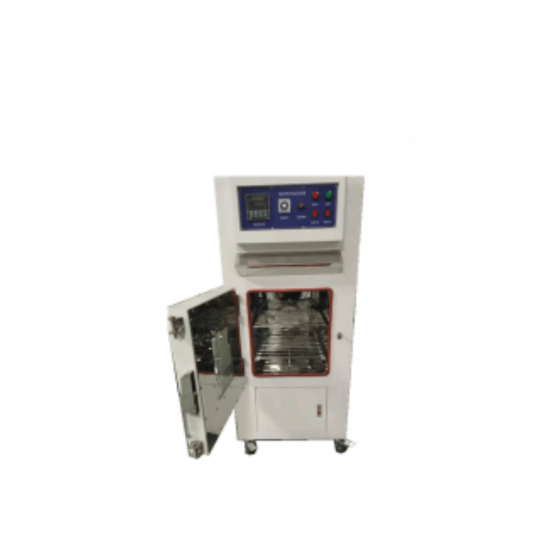A Battery Shock Impact Tester is specialized equipment designed to evaluate the robustness and safety of batteries when subjected to mechanical shocks. This type of testing is essential for ensuring that batteries can withstand impacts they might encounter during handling, transportation, or use without suffering from internal damage, leakage, fire, or explosion. Mechanical shock tests are critical for assessing the durability and reliability of batteries used in consumer electronics, electric vehicles (EVs), energy storage systems, and other applications.
Key Features
1. Shock Simulation
- Capable of simulating mechanical shocks with precise control over acceleration, pulse duration, and waveform (e.g., half-sine, sawtooth). These parameters can be adjusted according to specific test standards or custom requirements.
2. Adjustable Intensity
- Allows for setting different levels of shock intensity to simulate various real-world impact scenarios. This flexibility is important for testing a wide range of battery sizes and types under conditions they are likely to face.
3. Battery Fixtures
- Equipped with adjustable fixtures to securely hold batteries of different sizes and shapes during the test. Proper securing ensures that the shock is applied consistently and accurately.
4. Data Acquisition System
- Advanced testers come with integrated data acquisition systems to monitor and record key parameters such as acceleration, displacement, and battery performance before and after the test. This data helps in analyzing the structural integrity and potential failure modes of the tested batteries.
5. Safety Features
- Designed with multiple safety features including protective enclosures, emergency stop buttons, and sometimes remote operation capabilities to protect operators during testing. Given the potential hazards associated with battery testing, these features are critical.
6. Environmental Controls (Optional)
- Some high-end models may include environmental chambers to conduct tests under controlled temperature and humidity conditions, simulating extreme environments where the battery might be used or stored.
Battery Safety Tester
Applications
- Consumer Electronics: Ensuring that batteries in devices like smartphones, laptops, and wearables can survive accidental drops or impacts.
- Electric Vehicles (EVs): Critical for assessing the safety and durability of EV battery packs against mechanical shocks encountered during accidents or rough handling.
- Energy Storage Systems: Verifying the robustness of large-scale battery systems used in renewable energy installations against mechanical shocks.
- Regulatory Compliance: Helps manufacturers comply with international safety standards and regulations governing battery safety, such as UN/DOT 38.3, IEC 62133, and others.
Considerations When Choosing a Battery Shock Impact Tester
- Test Requirements: Ensure the tester meets your specific test protocols including shock intensity, waveform, and required data recording capabilities.
- Battery Size and Type: Select a tester capable of accommodating the size and shape of batteries you intend to test.
- Budget Constraints: Costs vary based on capacity, features, and brand. Determine which features are necessary versus those that are optional.
- Ease of Use: Look for user-friendly interfaces and straightforward setup procedures to facilitate efficient testing.
- Maintenance and Support: Consider the availability of spare parts, customer support, and maintenance services offered by the manufacturer.
By carefully evaluating these factors, you can choose a Battery Shock Impact Tester that not only fits your current needs but also supports future growth and compliance requirements. Ensuring the mechanical robustness of batteries through rigorous shock impact testing is essential for enhancing product safety and reliability across numerous industries.
Manufacturers who specialize in battery testing solutions or general-purpose impact testing equipment often provide Battery Shock Impact Testers. It's advisable to consult directly with these manufacturers or suppliers to find a solution tailored to your specific requirements and ensure it meets all necessary safety and performance standards. Examples of such manufacturers could include companies like Instron, MTS Systems, and others known for their comprehensive range of material and product testing equipment.





 Online service
Online service +86 13174506016
+86 13174506016
